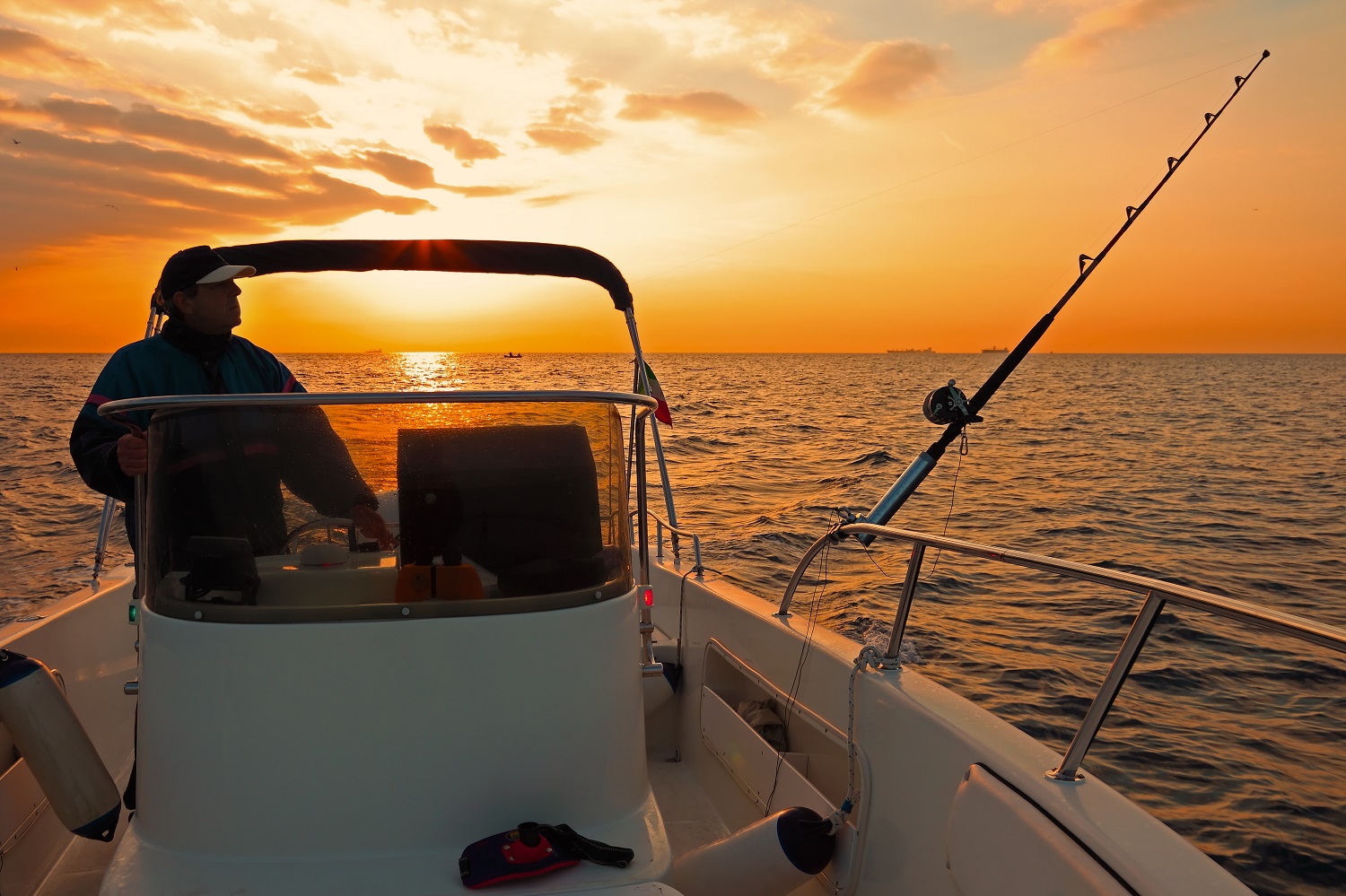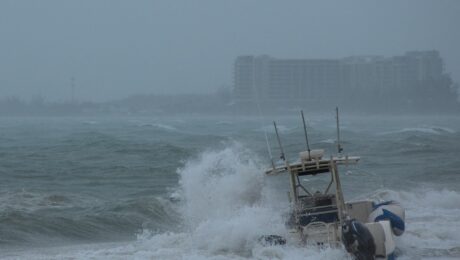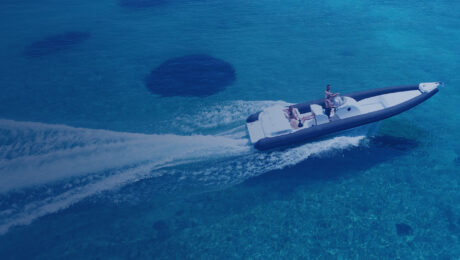What to consider before purchasing the fishing boat of your dreams
Many first-time boat buyers spend years looking for a fishing boat - From California to the Outer Banks, and from Florida to Maine, a fishing boat, whether it be bass boat, center console, or more traditional cabin cruiser, fishing boats remain very popular. What starts as excitement becomes tedium as they compare and contrast an endless model lineup of motor yachts and bass boats. With so many features to consider and so many boat shows offering so many options, the boat buying process can become overwhelming.
When you’re daydreaming about fishing expeditions, the movie in your head is probably more about reeling in a sailfish or relaxing in your captain’s chair with a beer than about the precise number of rod holders or the particular brand of fish-finder instruments you want. Our fishing boat buying guide is here to help you think through your boat requirements and make some decisions that get you on the water sooner.
In this boat buying guide, we’ll address important considerations when you’re purchasing your first fishing boat, including:
- How you’ll use your fishing boat,
- Whether you’ll spend more time in saltwater or freshwater,
- Boat designs that appeal to you,
- Boat propulsion systems,
- Boat accessories and equipment,
- Boat buying options,
- Boat surveying and inspection, and
- Boat financing options.
How will you use your new fishing boat?
Rather than thinking in terms of finding the “perfect boat,” think in terms of the right boat for your fishing habits and preferences. In other words, does it meet your fishing needs? Naturally, that depends on the type of fishing trip you’re dreaming of.
Do you enjoy shallow water fishing, or do you like to go deep?
While you can take a V-hull or semi-V hull jon boat out onto the ocean on calm days, it would be an unpleasant and potentially dangerous trip on rough water. A flat bottom skiff would be out of the question on blue water. On the other hand, a motor cruiser with a deep-V hull and large outboard motors would be a stick in the mud in shallow waters.
Do you fish purely for fun, or do you fish competitively?
If you’re a serious angler, you’ll need to consider speed as well as professional fishing equipment like livewells, insulated fish storage, and rigging stations. You’ll also want to take a long look at your casting decks and geek out on fish-finding sensors. If you’re a casual angler, you may be more interested in finding a durable, fuel efficient fishing boat that you’ll be able to enjoy for years to come.
Do you plan on taking long fishing trips, or do you prefer short day trips?
If you’re looking at longer trips out on the water, such as overnight fishing trips or week-long competitive fishing expeditions, you’ll need berths for overnighting as well as a head, a sufficient galley for your purposes, and plenty of fuel capacity. If you’re a casual angler who sticks close to shore, you might prefer a trailerable boat and a lightweight trolling motor.
Do you plan to use the boat exclusively for fishing, or will you invite friends and family for weekend watersports?
If you intend to use your boat purely for fishing, then you might skimp on comfort and make do with spartan fishing capabilities. However, if your fishing boat is going to double as a fun getaway for family and friends, you’ll need to choose a more versatile model. In that case, you’ll want protection from the sun, plenty of space for hanging out up on deck, and a comfortable ride regardless of the water conditions.
Do you plan on saltwater fishing trips, or will you be in freshwater?
Saltwater corrodes metal ten times faster than freshwater, eating away at both iron and aluminum. If saltwater runs through your fishing boat’s engine, it can lead to galvanic corrosion, which compromises the performance of your boat, depreciates its value, and ultimately leads to engine failure. Naturally, that means saltwater boats must be equipped with systems stout enough to stand up to saltwater corrosion. For example, a premium brand saltwater boat will come equipped with a closed cooling system and an electronic corrosion inhibitor to protect it.
While you can take many freshwater boats out to sea, you’ll need to follow more rigorous maintenance protocols when you get back to dock. To avoid corrosion, you’ll want to rinse your boat’s deck and hull after each outing in salty waters and flush the outboard engines, steering, and anchoring systems. Saltwater anglers will also want to invest in a sacrificial anode to protect props and a bottom paint job that offers protection against the elements.
What boat design most appeals to you?
If you’re in the market for a new boat, it’s a safe bet that you’ve already spent some time on fishing boats in the past. Was there a specific type of fishing boat you really enjoyed?
Skiff
Also known as flat boats, skiffs are the perfect fishing boat for anglers who like to hang out on shallow waters, inshore saltwater bays, marshes, and bogs. As they extend only a few inches into the water, they don’t come with much storage space. If you’re planning on taking extended trips, this might be an issue for consideration.
Bay Boat
More versatile than a skiff, a bay boat can take you out to the shallows or to deeper waters (though not too far offshore). They’re great for water sports like skiing, and they come with some modest storage space though still not enough for most overnight fishing trips.
Center Console Boat
Even more versatile than bay boats, the center console is the preferred fishing boat of many seasoned anglers. Though the amenities are still pretty bare, they’re user-friendly, fuel efficient, and maneuverable in a variety of environments – inshore, nearshore, offshore, you name it. Plus, the boat’s namesake center console provides optimum control and visibility.
Fish-and-Ski Boat
As the name suggests, fish-and-ski boats combine features suitable for both watersports and fishing. They offer speed, fishing capabilities, and some storage space, and they’re comfortable enough for a family to spend an entire day on the water doing all the things they enjoy.
Bass Boat
Bass boats are comfortable, powerful, and perfect for freshwater fishing. They’re priced higher than other freshwater fishing boats, but they frequently come fully equipped with navigational and fish-finding technology that can significantly improve your day on the water.
Cuddy Cabin Boat
If you’re a saltwater angler dreaming of longer fishing trips, a cuddy cabin boat offers more living amenities and protection from the sun on searing days.
Flybridge Sportfishing Boat
This is probably the boat you have in mind when you’re picturing a day out on the blue water. These big game fishing boats are fast, powerful, and extremely comfortable. They also offer superior visibility compared with other fishing boats.
Convertible Boats
As the name suggests, the convertible boat is the Cadillac of fishing boats. Large and fast, convertible boats are basically luxury motor yachts for anglers. In addition to a sumptuous living space, these boats can be customized with flybridge, fighting chair, and marlin towers. They’re perfect for offshore and deep sea fishing as well as full day or even overnight cruising.
What kind of power are you looking for in your fishing boat?
Your propulsion package has a significant impact on your boating experience. While an underpowered boat may be frustrating, an overpowered boat can be very dangerous, causing the captain to lose control and potentially capsize the boat. The type of boat you purchase will determine, to some extent, the type of motor you’ll be able to use and, in turn, the amount of power and speed you can expect.
If you’re looking for quiet days out in the tidal creeks, a jon boat with a single engine or even a trolling motor might be sufficient. However, if you’re taking your rods out to sea or you’re planning to enter fishing tournaments, you’ll need a bass boat or sportfishing boat with more power. Many larger boats now have two or more outboard motors, which can really pick up the pace and add some security to your offshore adventures.
Tip: When you’re considering the amount of power you need in a boat, it’s important to think about the total weight of boat passengers, equipment, and your fishing trophies as more weight requires more power.
What fishing accessories and equipment are must-haves on your new boat?
Do you know if you will need a fishing livewell? If you will take long fishing trips, the answer is a resounding yes. A livewell is also useful if you use live bait or if you’re joining a bass fishing tournament that encourages catch and release. However, a casual angler will probably be fine making do with a bucket of water. Likewise, rod and tackle storage and high-tech fish-finder instruments may be necessary to a professional angler but not too critical to the weekend fisher. Go ahead and make a list of the amenities you absolutely cannot live without, so you’ll know exactly what you’re looking for in your dream boat. Some hi-tech instruments favored by serious anglers include:
- GPS,
- Chartplotter,
- Depth finder, and
- CHIRP sonar and radar.
What are your boat buying options?
New Boats
There are some distinct advantages to buying a new boat versus a used boat. First, new fishing boats come with warranties, and sometimes you can get warranty extensions. New boats are frequently well-equipped with the modern technology, and they’re going to be in better shape than the average used boat, even if it’s been cared for. You can have a new boat customized with the finishes and fabrics that you choose, and you can get on the water quickly as there shouldn’t be much maintenance. Furthermore, financing a new boat is often much easier than financing a used boat, and your boat dealer’s finance organization will be able to help you select the best insurance for your new boat purchase.
Tip: Once you purchase your new fishing boat, be sure the boat dealer activates the warranty.
Used Boats
Used boats can be a great way to try out your luck as a boat owner without investing too heavily up front. However, don’t be fooled by low price tags. Used boats come with their own costs. If you’re purchasing a pre-owned boat, pay close attention to the age of the boat and the number of engine hours. Too few or too many operating engine hours can be a red flag that the boat is coming to you with baggage. Purchasing a used boat can also mean potentially having to spend money on repairs and maintenance to bring the boat up to safety and comfort standards before you ever start to use it.
Tip: Whether you’re purchasing a new or used boat, hire a qualified third-party marine surveyor to ensure your safety and the safety of your loved ones.
Boat Dealers
A reliable and reputable dealer will provide you with helpful tips for buying your new boat and help save you headaches down the road (or down the channel, as it happens). If you have a dealer on your side, they can research comprehensively and carefully to find a boat that meets your needs and your budget. They’ll often offer the opportunity for a sea trial so you can get a feel for your new boat and check that all the operating systems are running properly, and dealers generally offer a warranty, too, adding a little extra security to your purchase. They can even help you navigate financing.
Private Sellers
Every once in a while, a perfect fishing boat will show up on a website, or you’ll see a For Sale sign posted on a boat at your local marina. Buying from a private seller can be a positive experience if you are confident that the seller is trustworthy. Be sure to have the boat surveyed and inspected by a third-party marine surveyor, though, as you’ll get no warranty from a private boat seller.
Will you pay cash or finance the purchase of your new boat?
If you’re planning to purchase a used boat, you’ll definitely want to pay cash as older boats often require larger down payments or higher interest rates. However, if you’re purchasing a new fishing boat from a boat dealer, you may be able to arrange financing with your dealer at very respectable rates. You could also take out a loan from your bank or from a lender who specializes in marine financing. In either case, if you’re financing your boat, you’ll need to purchase boat insurance. Frequently, boat dealers’ finance organizations can provide you with insurance or connect you with an insurance provider.
Tip: When you’re budgeting for your new fishing boat, remember to include the ongoing costs of boat ownership, such as gas prices, boat maintenance, registration fees and taxes, insurance, and mooring or dry stack storage.
What safety issues should you take into consideration when purchasing a fishing boat?
Hire an expert boat surveyor for a professional inspection
First time boat owners occasionally make the mistake of making a boat purchase without an inspection by an experienced boat surveyor. Whether you’re dealing with private sellers or a boat dealer, the sooner you can bring an experienced boat surveyor into the process, the better. A professional marine surveyor will be able to identify any potential problems with the fishing boat you’ve got your eye on. If they spot a potentially expensive and dangerous issue, a boat inspection can save tens of thousands of dollars. Even if the surveyor only finds a few minor flaws in the boat design, the inspection gives you grounds to ask for issues to be resolved or to negotiate for the price to be reduced. In either case, you’ll feel much better when you encounter rough seas if you’ve had your boat surveyed by an expert.
Invest in proper safety equipment
Even if you plan to stick to calm, shallow waters, boating safety equipment is non-negotiable. Make sure to purchase USCG-certified life jackets for everyone – note that one size doesn’t fit all if you have children on board. You should also equip your boat with the proper type and number of USCG-certified fire extinguishers, a VHF radio, navigation lights, and other safety equipment. You can request your local USCG Auxiliary to perform a free annual safety check of your boat once you’ve made the purchase to ensure you have the correct equipment. Vessels that pass this inspection are awarded a decal that informs official police authorities that your boat was in full compliance with all federal and state boating laws during a safety check for that year. If your boat doesn’t pass the inspection, you’ll receive a list of improvement recommendations to complete in order to pass re-inspection.
What kind of insurance will you need for your new fishing boat?
Once you’ve purchased your new boat, don't leave it to luck or superstition, you’ll want to invest in boat insurance to protect it. While most states don’t require boat insurance to register or operate a boat, there are other reasons to get a boat policy. If you plan to keep your boat in a slip or dry stack storage, most marinas will require that you add them to your liability insurance policy as an additional insured. If you’re financing the purchase of your boat, your lender will most likely require you to purchase boat insurance. Boat insurance also protects your investment, including equipment you’ve had installed on your boat. In the event of a total loss, a boat insurance policy will ensure you can get back on the water in your next new boat sooner.
Ahoy! Insurance is brought to you by boaters who understand the way you feel about your new fishing boat. We are a boat insurance company that knows it’s a lot more than just another asset. Whether you’re using your boat to enjoy some quiet leisure time or to win a fishing tournament trophy, the peace of mind a comprehensive policy brings is worth its weight in tuna. That’s why we designed the most comprehensive policy for boaters like you as well as innovative technological tools that let you turn your attention to what really matters: catching the big one.
Read our latest blog posts
What does boat insurance cover?


